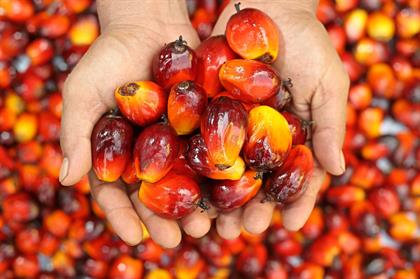
Palm oil, the most widely consumed vegetable oil globally, plays a pivotal role in numerous industries, from food and cosmetics to biofuels. However, its production has faced scrutiny due to environmental and social concerns, prompting the need for sustainable and innovative solutions. Technological advancements are reshaping the landscape of palm oil production, offering opportunities to enhance efficiency, sustainability, and transparency throughout the supply chain.
Precision Agriculture: Maximizing Yields and Minimizing Environmental Impact
Precision agriculture, empowered by satellite imaging, drones, and sensor technology, enables farmers to monitor and manage palm oil plantations with unprecedented accuracy. By precisely applying fertilizers and pesticides only where needed, farmers can optimize resource utilization, reduce input costs, and minimize environmental impact. Additionally, real-time monitoring of soil moisture levels and weather patterns allows for timely irrigation and crop management decisions, enhancing resilience to climate change-induced challenges.
Automated Harvesting and Processing: Boosting Efficiency and Quality
Traditional palm oil harvesting and processing methods are labor-intensive and often inefficient. However, robotics and automation are revolutionizing these practices, improving productivity and product quality. Harvesting robots equipped with artificial intelligence and machine vision can swiftly and accurately identify ripe fruit bunches, reducing harvest time and labor costs while minimizing damage to trees. In processing plants, advanced machinery streamlines extraction, refining, and packaging processes, ensuring consistency and purity of the final product.
Sustainable Practices: Nurturing the Environment and Communities
The palm oil industry has faced criticism for deforestation, habitat destruction, and human rights abuses. To address these concerns, technological innovations are facilitating the adoption of sustainable practices. High-resolution satellite imagery enables monitoring of deforestation and land use changes, helping companies enforce no-deforestation commitments and protect biodiversity hotspots. Furthermore, blockchain technology enhances traceability, allowing consumers to track palm oil back to its source and verify adherence to sustainability standards, fostering transparency and accountability across the supply chain.
Climate-Smart Solutions: Adapting to Changing Environmental Conditions
Climate change poses significant challenges to palm oil production, including unpredictable weather patterns, water scarcity, and pest infestations. To mitigate these risks, climate-smart technologies are being deployed. For instance, researchers are developing drought-tolerant palm varieties using genetic engineering and selective breeding techniques, ensuring continued productivity in water-stressed regions. Additionally, smart irrigation systems equipped with sensors and data analytics optimize water usage, conserving resources and minimizing environmental impact.
Regulatory Compliance: Navigating Complex Legal and Market Requirements
The palm oil industry operates in a complex regulatory landscape, with various environmental and social standards governing production and trade. Technological innovations aid companies in navigating these requirements and ensuring compliance. Digital platforms and software solutions facilitate documentation, certification, and reporting, streamlining the certification process and reducing administrative burdens. Moreover, blockchain-based systems provide immutable records of compliance, enhancing trust and credibility in certified sustainable palm oil.
Increased Efficiency
Increased Efficiency: Innovations such as advanced harvesting machinery, automated processing plants, and precision agriculture techniques improve the efficiency of palm oil production. This leads to higher yields per hectare of plantation, reducing production costs and potentially lowering prices in the market due to increased supply.
Conclusion: Embracing Innovation for a Sustainable Future
Technological innovations hold immense promise for transforming the palm oil industry, offering solutions to longstanding challenges while paving the way for a more sustainable and transparent future. By harnessing the power of precision agriculture, automation, sustainability practices, climate-smart solutions, and regulatory compliance tools, stakeholders across the palm oil supply chain can drive positive change and ensure the long-term viability of this vital commodity. As consumer demand for ethically sourced and environmentally friendly products continues to rise, embracing innovation becomes not only a strategic imperative but also a moral obligation for the palm oil industry.
Leave a Reply
Related Products
You Might Like Also

Palm oil forecasting involves predicting future trends in the price and production of palm oil. As one of the most widely used vegetable oils in the world, found in products ranging from food to cosmetics and biofuels, understanding its market dynamics is crucial for stakeholders. Read More

Planning a private event in Singapore and looking for the perfect venue? Whether it's a corporate gathering, a birthday celebration, or an intimate wedding, the right location sets the tone for an unforgettable experience. Read More

Exploring the Culinary Delights of Westgate: A Taste of Singapore's Vibrant Food Scene
One of the defining characteristics of the Westgate food scene is its fusion of flavors, reflecting Singapore's multicultural heritage. Read More

Culinary Journey Through Singapore's French Restaurants
While French restaurants in Singapore stay true to the traditions of French cuisine, many also embrace the city-state’s multicultural ethos by infusing local ingredients and flavors into their menus. Read More

Exploring Diverse Careers in the Music Industry Jobs
Behind every hit song and successful album, there exists a vast network of professionals contributing their unique skills and talents. From creative roles to business-oriented positions, the music industry offers a wide array of exciting career opportunities. Read More

A Culinary Journey Through Singapore: Brotzeit and Beyond
Singapore's culinary landscape is a vibrant tapestry of flavors, and Brotzeit stands out as a gem that adds a touch of German warmth to the mix Read More











